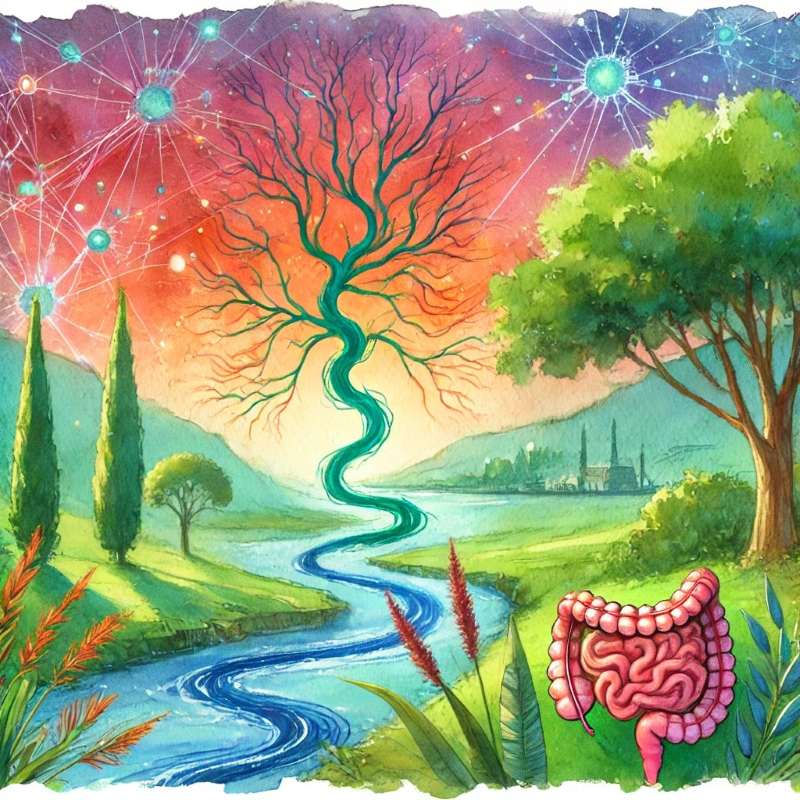Gut-Brain Link in Parkinson’s

Parkinson’s disease (PD), a neurodegenerative condition traditionally characterized by motor symptoms such as tremors and rigidity, has complex origins that might involve more than just the brain. Recent research delves into how elements such as alpha-synuclein, a protein found both in the brain and the gut, could play a crucial role in the disease’s progression through a prion-like mechanism. This discovery leads to potential new interventions and treatment strategies by targeting these pathways, aiming to modify the disease’s progression from its earliest stages.
Alpha-Synuclein and Prion-Like Transmission
Alpha-synuclein’s misfolding and its aggregation into Lewy bodies are central to PD’s pathology. The protein’s ability to propagate from neuron to neuron and potentially from the gastrointestinal tract to the brain via the vagus nerve—a neural superhighway—highlights a prion-like mechanism. Prion-like refers to a process similar to that of prions, infectious agents composed of protein in a misfolded form that can induce the misfolding of normal proteins, spreading disease. This prion-like spread, where misfolded proteins induce similar misfolding in healthy proteins, aids the pathological cascade across the brain regions and from other parts of the body like the gut. Understanding this mechanism opens avenues for targeted interventions that could intercept these processes at various stages.
Targeting Alpha-Synuclein in Clinical Trials
The ongoing clinical trials focusing on antibodies against misfolded alpha-synuclein aim to neutralize this protein before it can aggregate and spread, potentially offering a way to modify the course of Parkinson’s disease fundamentally. These trials are part of a broader research initiative to understand how preventing the spread of pathological proteins could alleviate or even prevent the onset of PD symptoms.
The Role of the Gut-Brain Axis
The gut-brain axis and the vagus nerve play pivotal roles in maintaining the communication between the gastrointestinal system and the brain. This axis suggests that maintaining gut health might be a strategic approach to influence neurological health. Probiotics such as Lactobacillus and Bifidobacterium strains have been shown to have beneficial effects on gut health, which might extend to neurological health by reducing inflammation and possibly altering neurotransmitter functions.
Dietary and Lifestyle Interventions
Diet and lifestyle changes can significantly impact gut health and, by extension, potentially influence the development and progression of Parkinson’s disease. High-fiber diets, polyphenol-rich foods, and regular physical activities are recommended to promote a healthy gut microbiome. These interventions, together with stress management techniques and adequate sleep, may help modify the early course of PD by maintaining a balanced gut environment conducive to overall health.
Challenges and Future Directions
While targeting the transmission of alpha-synuclein presents a promising area for developing new therapeutic strategies, challenges such as determining the most effective intervention stages and addressing individual variability in treatment responses remain. Ongoing research into the prion-like properties of alpha-synuclein and the gut-brain connection in PD will be crucial in overcoming these hurdles and developing effective strategies to combat the early stages of the disease.
SEO Keywords: Parkinson’s disease, alpha-synuclein, gut-brain axis, vagus nerve, clinical trials, probiotics, lifestyle interventions, neurodegenerative disorders, Lewy bodies, prion-like mechanisms
AI-generated medical content is not a substitute for professional medical advice or diagnosis; I hope you found this blog post informative and interesting. www.parkiesunite.com by Parkie
DALL-E Prompt for Watercolor Image: A watercolor painting depicting a serene landscape with a vibrant depiction of the gut-brain connection through a stylized representation of the vagus nerve connecting the brain and the gastrointestinal tract amidst a backdrop of lush greenery and abstract elements symbolizing neurons and synapses.
Keywords for Image: Parkinson’s disease, vagus nerve, gut-brain axis, watercolor painting